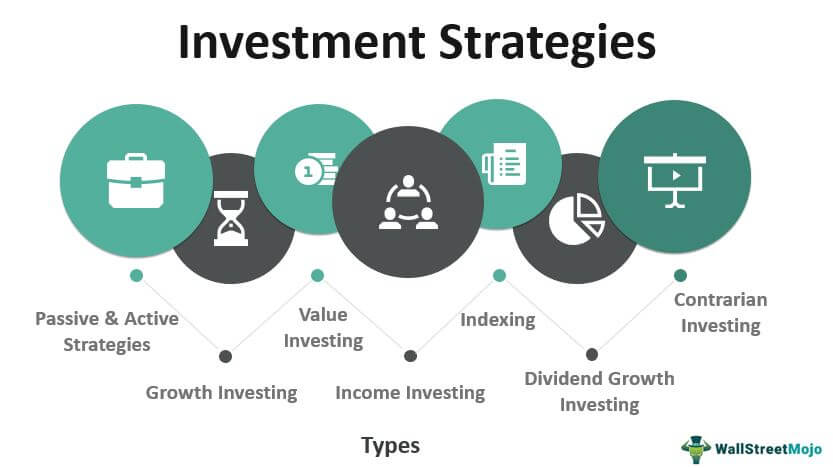Investing your money is a smart way to build wealth over time. However, if you’re new to the world of investments, it can feel overwhelming. With the right strategies, you can navigate this landscape confidently. This guide will help you understand essential investment strategies for beginners.
Understand Your Financial Goals
Before diving into investment, define your financial goals. Are you saving for retirement, buying a house, or funding your child’s education? Knowing your goals will help you choose the right investment options. Additionally, understanding your risk tolerance is crucial. Risk tolerance refers to your ability and willingness to lose some or all of your original investment in exchange for greater potential returns.
Create a Budget and Save Regularly
Investment begins with savings. Establish a budget that allows you to save a portion of your income regularly. Pay yourself first by setting aside a fixed amount before other expenses. This habit ensures you have a steady flow of funds for investment.
Build an Emergency Fund
An emergency fund is a financial safety net for unexpected expenses. Aim to save three to six months’ worth of living expenses in a liquid, accessible account. This fund should be separate from your investment accounts. It protects you from having to liquidate your investments during a financial emergency.
Diversify Your Investments
Diversification is a key strategy to manage risk. Spread your investments across different asset classes like stocks, bonds, and real estate. This approach reduces the impact of a poor-performing asset on your overall portfolio. For example, if the stock market declines, gains in bonds or real estate can offset losses.
Invest in Index Funds and ETFs
Index funds and exchange-traded funds (ETFs) are excellent choices for beginners. These funds track specific market indices and offer broad market exposure at a low cost. They provide instant diversification, reducing risk. Additionally, they require less active management, making them ideal for those new to investing.
Start with a Retirement Account
Opening a retirement account, such as a 401(k) or IRA, is a great way to begin investing. These accounts offer tax advantages, which can help your investments grow faster. Contribute enough to get any employer match, as it’s essentially free money. Then, aim to increase your contributions gradually.
Learn About Dollar-Cost Averaging
Dollar-cost averaging involves investing a fixed amount regularly, regardless of market conditions. This strategy reduces the impact of market volatility. By purchasing more shares when prices are low and fewer when prices are high, you lower your average cost per share over time.
Rebalance Your Portfolio Regularly
Rebalancing involves adjusting your portfolio to maintain your desired asset allocation. Over time, some investments may grow faster than others, shifting your allocation. Regularly review and adjust your portfolio to stay aligned with your investment goals and risk tolerance.
Avoid Timing the Market
Trying to predict market movements is risky and often unsuccessful. Instead of timing the market, focus on time in the market. Consistently investing over a long period yields better results. Historical data shows that long-term investments typically outperform short-term trading.
Educate Yourself Continuously
The investment world constantly evolves. Stay informed by reading books, following financial news, and taking courses. Education helps you make informed decisions and adapt to changing market conditions. Consider learning from reputable sources like financial advisors or investment professionals.
Keep Emotions in Check
Investing can be emotional, especially during market fluctuations. Fear and greed can lead to poor decisions, such as selling during a market downturn or buying during a peak. Develop a disciplined approach and stick to your strategy, regardless of market conditions.
Take Advantage of Compound Interest
Compound interest is the interest earned on both your original investment and the interest already accrued. The earlier you start investing, the more time your money has to grow through compounding. Even small, regular investments can grow significantly over time.
Consider Professional Advice
If you’re unsure about managing your investments, consider seeking professional advice. A financial advisor can help you create a personalized investment plan based on your goals, risk tolerance, and financial situation. While there may be fees involved, the benefits often outweigh the costs.
Monitor Your Investments
Regularly review your investments to ensure they align with your goals. Monitoring helps you stay on track and make necessary adjustments. However, avoid checking too frequently, as short-term fluctuations can lead to unnecessary stress.
Be Patient and Stay Committed
Building wealth through investment takes time. Be patient and stay committed to your long-term strategy. Avoid the temptation to make hasty decisions based on short-term market movements. Consistency and discipline are key to successful investing.
Final Thoughts
Investing is a powerful tool for growing your wealth, but it requires knowledge and discipline. By understanding your goals, diversifying your portfolio, and staying informed, you can build a solid foundation for your financial future. Start small, be consistent, and let the power of compounding work in your favor. With these strategies, you’ll be well on your way to achieving your financial goals.




